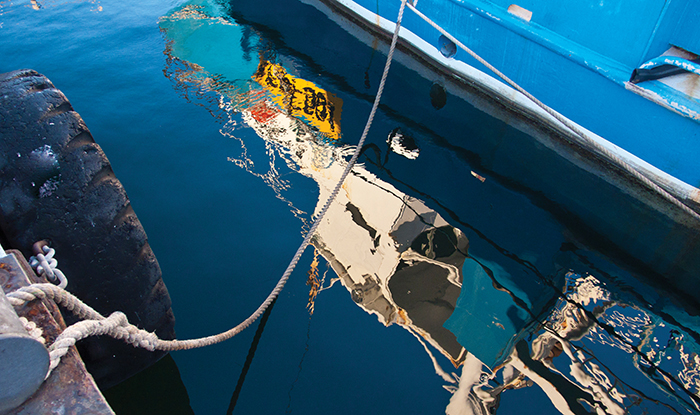A new initiative provides support from within local fishing communities to help fishers manage the psychological impacts of industry challenges.
A new national mental health program has been launched, designed specifically for the commercial fishing sector, with three local communities chosen to host a pilot of the program.
It focuses on mental health early intervention, engagement and education for commercial fishers. Lakes Entrance (Victoria), Newcastle (New South Wales) and Darwin (Northern Territory) have been chosen for the pilot after consultation with fishing industry stakeholders.
The Australian Government is funding the new program, which is an initiative of Seafood Industry Australia (SIA), supported by Women in Seafood Australasia (WISA).
Research undertaken as part of an FRDC project completed in 2019 showed Australia’s commercial fishers experience twice the rate of psychological stress of any other sector. SIA CEO Veronica Papacosta says the program is a response to these concerning research findings.
“We understand the pressures our fishers face are unique to industry, and a third of fishers suffering psychological stress said they hadn’t reached out for support because they didn’t believe health professionals would understand the pressures of the fishing industry,” she says.
“This program has been specially developed to help break the stigma associated with poor mental health within industry, to develop a network of trusted advocates who fishers can contact to help them find support, and to educate primary healthcare networks about industry pressures.”
To manage the two-year program, SIA has appointed psychologist Jo Marshall, who brings extensive experience in mental health engagement and education to the role. She is supported by a steering committee that includes Allison Kennedy from Deakin University’s National Centre for Farmer Health; Kirsten Abernethy, director of Sea Change Consulting; and Barbara Konstas, Victorian director of WISA
Jo Marshall says trusted advocates will be identified in each community to provide industry with information and referrals to local services, and coordinate activities to build awareness and reduce the stigma of mental illness.
“We will equally be working towards providing people with a better understanding of prevention and wellness activities. Just like our physical health and wellbeing, our mental health can be cared for in an effort to prevent illness.”
The program has been welcomed by industry leaders in the target communities, including executive officer of the South East Trawl Fishing Industry Association Simon Boag, who is based at Lakes Entrance. He says recent challenges for local fishers have included the loss of commercial fishing to other interests such as recreational fishing and gas and oil exploration.
“We are all faced with adversity, but the last few years have been especially tough for the Lakes Entrance fishing community and I am glad this program has arrived.”
CEO of the NSW Professional Fisher’s Association Tricia Beatty says the NSW commercial sector has also been through a recent large-scale restructure that caused great anxiety. “This has been coupled by other major issues such as COVID-19, bushfires, floods, seismic surveys and dropped shipping containers causing significant safety issues,” she says.
The pilot program will help to inform ongoing national industry-specific mental health and wellbeing programs, projects and outreach activities. SIA will also provide mental health first aid training for national industry leaders, and it can also provide Community Resilience Grants to help fund industry events where mental health information is available or where a speaker talks about their lived experience.

Photo: Brad Collis.
If you or someone you know needs help, contact a crisis helpline:
- Lifeline – 13 11 14
- Beyond Blue – 1300 224 636
- MensLine – 1300 789 978
If there is immediate danger, please call 000 or visit your nearest hospital emergency department.
FRDC Research Code: 2016-400
More information
Jo Marshall





